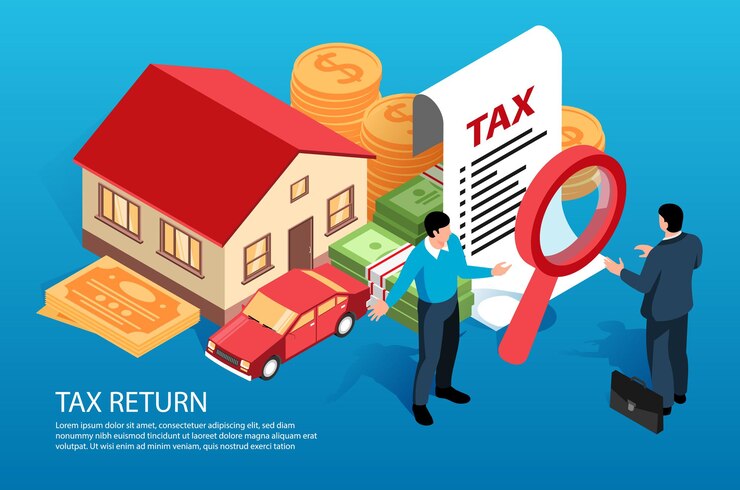Property taxes are one expense homeowners have to bear-which often rise every year due to an increase in the value of property, meaning that many homeowners often pay more than what their true worth is. The exciting part? You have rights, and one of them gives you the authority to appeal against your property tax assessed and possibly lower your total tax bill. This post will take you through everything you need to know about filing for a property tax protest to save cash and ensure justice.
Why Protest Your Property Taxes?
Protesting your property taxes isn’t just about saving money it’s about advocating for what’s fair. Local governments rely on property taxes to fund essential services, but sometimes, mistakes in property valuation lead to inflated tax bills.
Benefits of Protesting Your Property Taxes
Lower Annual Costs: A successful protest means less money spent on taxes each year.
Long-Term Savings: Adjusted assessments can lead to lower taxes in future years.
Promote Fairness: Ensure your tax burden aligns with your property’s true value compared to similar properties.
Understanding How Property Taxes Are Calculated
Before filing a protest, it’s essential to understand how property taxes work. Local appraisal districts assess the market value of your property annually. This value, multiplied by your area’s tax rate, determines your tax bill.
Common Issues with Assessments
Overvaluation: Your property’s value is assessed higher than its market value.
Incorrect Information: Your property information is incorrect, like size or condition.
Unequal Appraisal: Other comparable properties in your neighborhood are appraised lower.
How to File a Property Tax Protest
If you feel that your property taxes are too high, you can file a protest by following these steps:
Step 1: Review Your Assessment Notice
Each year, your local appraisal district sends an assessment notice outlining your property’s value. Review this document carefully and note the deadline for filing a protest, typically 30–45 days after the notice date.
Step 2: Gather Evidence
To strengthen your case, collect the following evidence:
Comparable Sales Data: Find recent sales of similar properties in your area.
Condition Reports: Highlight any issues with your property, such as structural damage or outdated features.
Professional Appraisals: A recent appraisal can provide an accurate value.
Step 3: File Your Protest
Submit a protest form to your local appraisal district. Many districts allow online submissions for convenience. Clearly state the reason for your protest, whether it’s overvaluation, incorrect data, or unequal appraisal.
Step 4: Prepare for the Hearing
After filing your protest, the appraisal district will schedule a hearing. Use this time to organize your evidence and rehearse your argument.
Step 5: Attend the Hearing
During the hearing, you’ll present your evidence to a review board. Stay calm, professional, and concise. Be prepared to answer any questions about your property or evidence.
Tips for a Successful Property Tax Protest
Know Your Market
Understanding local property trends can make a big difference. Use online tools or consult a real estate agent to compare property values in your neighborhood.
Highlight Property Issues
If your property has defects, repairs, or other issues, document them with photos and repair estimates. These can significantly impact its market value.
Compare with Neighbors
If similar properties in your area are assessed lower, use this as evidence to argue for a reduced value.
Seek Professional Help
If the process seems too complex, consider hiring a property tax consultant or attorney. They specialize in handling protests and may be able to negotiate a better outcome for you.
What Happens After the Protest?
After the hearing, the review board will decide if they will adjust your property’s assessed value.
Possible Outcomes
Lower Assessment: Your evidence convinces the board, so taxes are lowered.
No Change: The board maintains the original value.
Appeal Choice: If not satisfied, arbitration or take the case to trial is possible.
Impact after the Protests
Benefits aside from savings in immediate value that can arise from protesting your property taxes.
Future Reduced Taxes
In cases of downward adjustment today, in ensuing years when assessments will look at it as their guideline.
Better Assessments, Better Accountabilities for Better Valuation
As each protest gives an apprised area a cue and encourages the appraisal district concerned to exercise better accuracies in assessment.
Final Thoughts
Challenging your property tax assessment may seem daunting; however, the potential savings make it worthwhile. Understanding the process, gathering strong evidence, and presenting your case effectively helps ensure a fair valuation and keeps more money in your pocket.
Don’t let an inflated property assessment drain your finances. Take control by filing a property tax protest today you’ll be glad you did!



